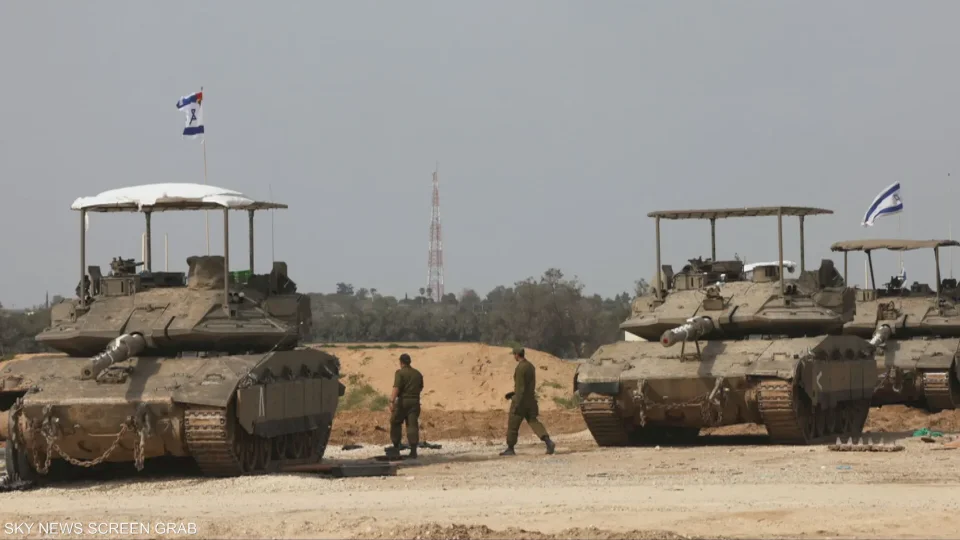
Former Head of Military Intelligence in Israel Links "Victory" to "Reaching a Deal and Establishing an Alternative Administration in Gaza"
SadaNews - The former head of the Israeli military intelligence division (Aman), Tamir Hayman, stated that "achieving victory in the war on the Gaza Strip" requires "reaching a prisoner deal and pushing towards establishing an alternative administration in Gaza," in an article published by Channel 12 in Israel on Saturday. He questioned whether the occupation of Gaza City and the camps in the central region could constitute "the dismantling of Hamas' last stronghold."
Hayman wrote that the concept of "victory" in modern wars is no longer synonymous with "total decisiveness"; it has come to be defined as "achieving pre-defined combat objectives at an acceptable cost and in a way that improves the security situation in the long term." He added that this understanding ignites debate in Israel between those demanding absolute decisiveness against Hamas, meaning the defeat of the movement through its annihilation, and those who are content with reaching the basic objectives.
According to his article, the objectives set by Israel since the beginning of the war included "dismantling Hamas' rule in Gaza, removing military threats against the citizens of Israel, restoring a sense of security, reinforcing deterrence, and creating conditions for the return of prisoners." However, he clarified that most of these objectives are "not measurable," and that what remains at its core is "eliminating Hamas and returning the prisoners."
He observed that Hamas no longer holds its previous capabilities, as "its brigades and leadership have been dismantled, and it does not conduct organized fighting," indicating that it has transformed into "an organization operating in a guerrilla warfare style." He considered that controlling territories, including Gaza and the central camps, is "not a decisive victory in itself"; it is merely "part of a lengthy process aimed at eroding Hamas."
He argued that Hamas "is no longer an organization with organized military capabilities as it was before October 7." He noted that it has "lost its military production, its special forces, its naval and aerial capabilities, in addition to its command and control structure." He indicated that it still possesses "only about 10% of its missile arsenal, along with approximately 10,000 rifles and 17,000 fighters, most of whom are new recruits lacking experience."
Hayman pointed out that "overthrowing Hamas' authority requires finding a competitive civilian alternative," warning that the absence of such an alternative creates a "vicious cycle" allowing the movement to regain its influence "through its control of humanitarian aid and its ability to recruit the youth of Gaza." He stated that "breaking this cycle will not be achieved simply by controlling Gaza City."
Regarding the prisoners, he viewed the objective as "creating conditions that pressure Hamas to prefer a deal over the continuation of fighting," considering that the main concession Israel can make is "to give up on limited field achievements within the sector." However, he described the existing dilemma as "the closer the army gets to a deal, it is interpreted in Israel as a sign of impending decisiveness–thus it is rejected."
He said, "The price Hamas will obtain in the prisoner deal will be manageable. This price will primarily depend on an Israeli concession regarding achievements resulting from a military occupation of lands within Gaza," emphasizing that "eliminating Hamas' authoritative capabilities, whether in terms of defeating it as an organization or destroying its capacity to govern, can be realized provided that another governance structure is established to compete with it."
Hayman wrote, "Israel currently controls more than 70% of the area of the Strip, and the military pressure over the past year has pushed Hamas to cry out for a deal and make concessions. However, here lies the dilemma: each time military pressure leads Hamas to concede and call for a deal, it is viewed in Israel as a sign of weakness indicating an impending decisiveness – and thus approval is prohibited, as responding means conceding decisiveness 'especially when we are very close to it.' The more Hamas feels it is stronger, the more exaggerated demands it makes, which of course cannot be accepted, and thus we find ourselves trapped in a continuous cycle."
He continued, "This complex reality, which we have put ourselves in with endless loops, must stop. It must be acknowledged that we have brought Hamas to the closest point possible to decisiveness, that we have created conditions for a good prisoner deal, and that we must seriously discuss the proposal to replace Hamas with another governance structure under Arab-international sponsorship."
He added, "We are much closer to victory than it appears on the surface. To achieve it, we need to reach a prisoner deal and push towards establishing an alternative administration in Gaza. We are compelled to continue to exhaust Hamas (continue targeting the movement) in combat without crossing the threshold of war after declaring victory."
He concluded his article by stating that Israel must "acknowledge that it has reached the maximum it can against Hamas" and that the current conditions allow for "a good prisoner deal and starting steps to form an alternative administration in Gaza under Arab-international sponsorship," affirming that "final decisiveness is still distant, but it is conditional on the existence of an alternative authority that weakens Hamas and prevents its resurgence."

Gaza Health: 3 Martyrs in the Last 24 Hours

Smotrich: The Southern Suburb Will Be Like Khan Younis

Lebanon Decides to Stop and Deport Iranian Elements, and Israel Requests Evacuation of the...

Report: Iran War May Last Until September

France Allows the United States to Use Its Bases in the Middle East

Education: Announcement of the School and University Attendance Mechanism Next Sunday

Civil Defense: We dealt with 12 cases of falling rocket shrapnel resulting in 4 minor inju...

